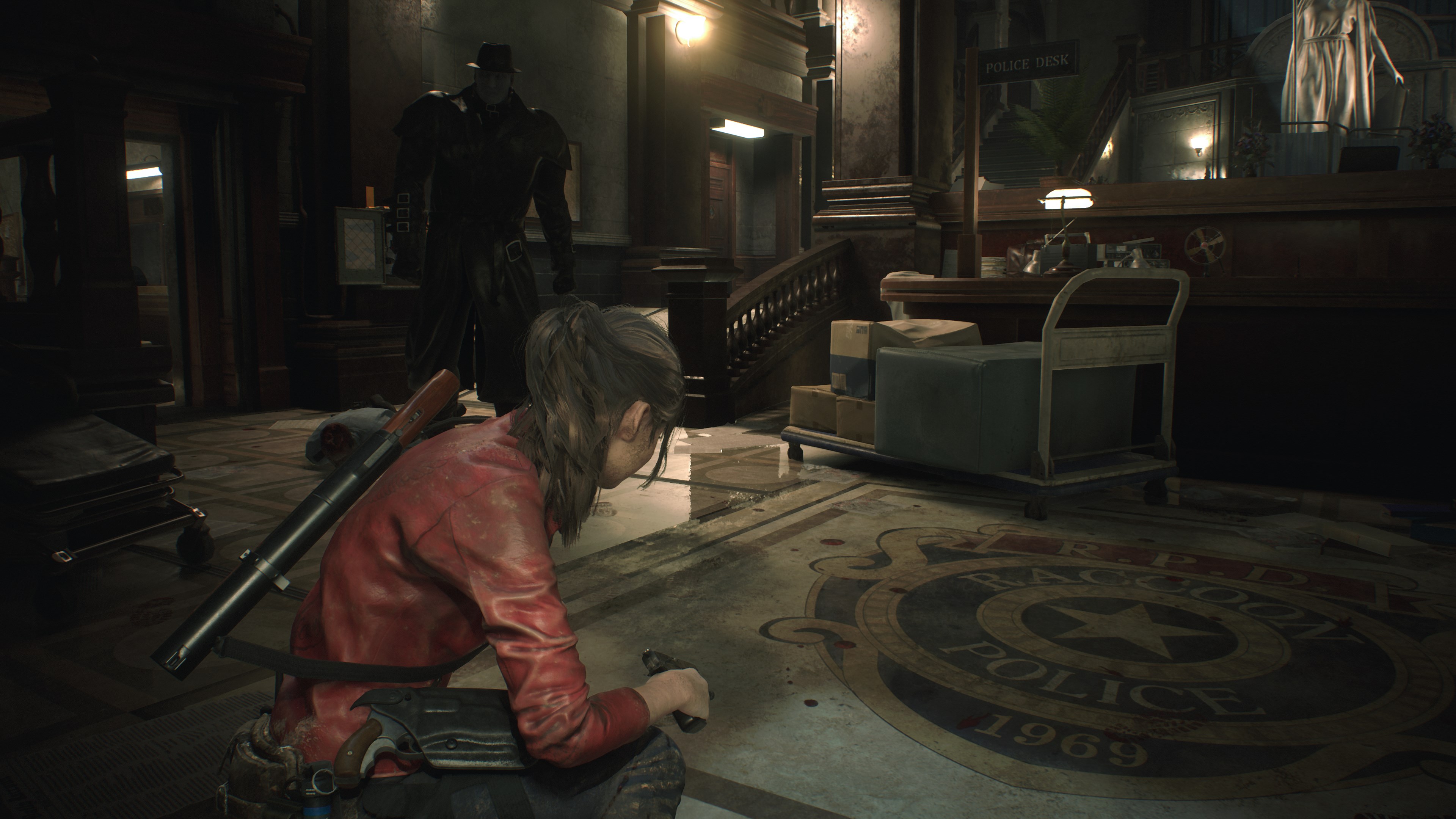

Of course, with the RE series moving more toward action in its later entries, and the proliferation of zombies across all media, the scares were either going to be absent in the remake or at least be tough to pull off. Featuring a rewarding and interesting story, the game still held true horror within the dimly lit halls of RPD and areas beyond. Then I went into the sewers, and blew up a giant alligator.Resident Evil 2 is seen by many as the pinnacle of early RE games. I thought I'd be in store for something special after the Kendo Gun Shop. It could have brought to the 1998 game a 2019 understanding of people, and not just gameplay systems. It could have updated the emotion of the original, and not just its aesthetics and gameplay. It's the sort of scene that makes you realize that, as impressive a remake Resident Evil 2 is, it could have been more. When he meets the player-Leon in this game, if you play his scenario first-the shock of meeting another human pushes him out of denial, and after asking you to leave him in peace, he locks himself in a room with his infected daughter and kills himself. In the remake, Kendo is a father in mourning, holed up in his shop while he waits for his infected daughter to turn completely. The Kendo Gun Shop is one of the more memorable scenes in the original Resident Evil 2, in which Claire Redfield, taking shelter in a gun store, meets its owner, Robert Kendo, who creepily offers to protect Claire just before zombies crash through the store window and eat him alive. It's likely because of what happened to Robert Kendo.

Good horror games are a series of interesting questions: How do I get into the next room? Why am I here? What went wrong in this place? It's the sort of thing that keeps a game living in your head long after you stop playing for the day.īut there's something bothersome about Resident Evil 2, too, even when you acknowledge how effective it is. In a good Resident Evil game, you're presented with a small labyrinth of locked rooms and challenged to either get the hell out or find your way into a part of it that someone really doesn't want you to get to. In fact, they're probably more about puzzles than anything else. Here's why I keep playing, though: Survival horror games like Resident Evil aren't just about scares. In the way that it chose to not walk itself back, Resident Evil 2 indulged in an impulse that the series never really shook-the desire to go bigger, always. It did all of the things that a game's sequel could possibly do: It was bigger, it was scarier, it was more complex, and it opened the world of the game up, going long on the biological warfare conspiracy mongering that the first reserved for its final act. Resident Evil 2-and let's talk about the original 1998 game first-is where things begin to go off the rails, even as it cemented the series as one of the best things in video-game horror. As a result, the games are best when their lenses are at their smallest: 2017's Resident Evil 7 is among the best games in the series for this reason, dialing the scale back to a single family, turned monstrous for something they were powerless to do anything about. Resident Evil games are largely about the horror of corporate indifference, as a single company's pursuit of profit starts to devastate small towns and villages and, eventually, the world. It's a series of games that, even at their most minimal, are about an evil pharmaceutical company with a small army of secret agents and mercenaries on its payroll, with designs on turning people into unkillable monsters that military contractors might want to buy. The voice acting was atrocious, the game's English translation was legendarily clunky, and it opened with live-action footage so kitschy you'd think it came from a Law & Order episode about gamers who murdered their parents. But even as it found new ways for video games to be scary, it also found itself with a surfeit of camp. It was like that in the very beginning, in 1996's Resident Evil, a game that more or less invented the now popular survival horror genre that utilized scarcity to ratchet up tension: of weapons, of support, of ways to escape.

For a long-running series of horror games, it's amusing how funny the Resident Evil franchise often is.


 0 kommentar(er)
0 kommentar(er)
